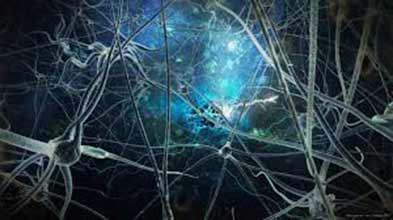By: Martha Digby, BSc (Hons)
Why is it that we humans continue to make the same mistakes over and over again? Why do we struggle with relationships at home, at the office and/or with friends? What is at the root of all our problems? Although it seems we have the desire to achieve peace and live in harmony with those we know and love, what is keeping us from building and attaining better relationships?
I believe that in order to realize the relationships we want, we need to reset the root source of our behaviour, by healing our existing wounds and creating new neural pathways to reprogram our learned behaviours.
Indeed, we often act out in our adult lives thanks to wounds inflicted during childhood. Perhaps we felt abandoned or rejected, or maybe we were made to feel unworthy. These subconscious wounds are then triggered in present-day relationships, and we act out from our “false” selves. How we relate to one another is also established in our childhood years, as we watched our role models—usually our parents—relate to one another. Our neural pathways are fixed, and we go forth in life constructing our own relationships, recreating learned behaviours, rather than acting from our own authentic being.
Through neural pathway reprogramming and regeneration, we can set up new rooted behaviours initiated from our aware “Adult” self rather than our unaware “Child” self (connected to our “false” self).
Two examples come to mind. In his book The Brain That Changes Itself: Stories of Personal Triumph from the Frontiers of Brain Science, Dr. Norman Doidge describes how neuroplasticity is overthrowing the centuries-old notion that the human brain is immutable, and proving that it is, in fact, possible to change your brain. He writes “the neuroplastic revolution has implications for, among other things, our understanding of how love, sex, grief, relationships, learning addictions, culture, technology, and psychotherapies change our brain [since] once a particular plastic change occurs in the brain and becomes well-established, it can prevent other changes from occurring.”
Moreover, in Connecting: Rewire Your Relationship-Culture (launched just this week!) by Victoria Lorient-Faibish, the Toronto-based registered holistic psychotherapist makes the case for changing what isn’t working to create a new, unique and choice-filled relationship-culture that you can consciously bring into your adult relationships. She writes “what you experienced in your family dynamics growing up is largely what you will replay in your relationships” but that “visualization and reframing [events that occurred in childhood] encourages the brain to set up new neural pathways and encourages the biochemistry of ease and calm versus fear and trauma.”
Psychotherapy is a safe space in which you can explore patterns, behaviours and triggers, and work to heal the wounds that bind you. Through talk therapy, body psychotherapy and guided visualizations, you can create new neural pathways, resulting in relationships that are more present, authentic, compassionate, harmonious, peaceful, balanced and supportive.
ABOUT MARTHA DIGBY: Martha is a Holistic Psychotherapist, couples’ therapist, counsellor, speaker, writer and educator who specializes in personal awareness, empowerment and growth, life crisis and transition, family, relationship and coworker issues, stress, anxiety, depression, grief, loss and trauma.











0 Comments